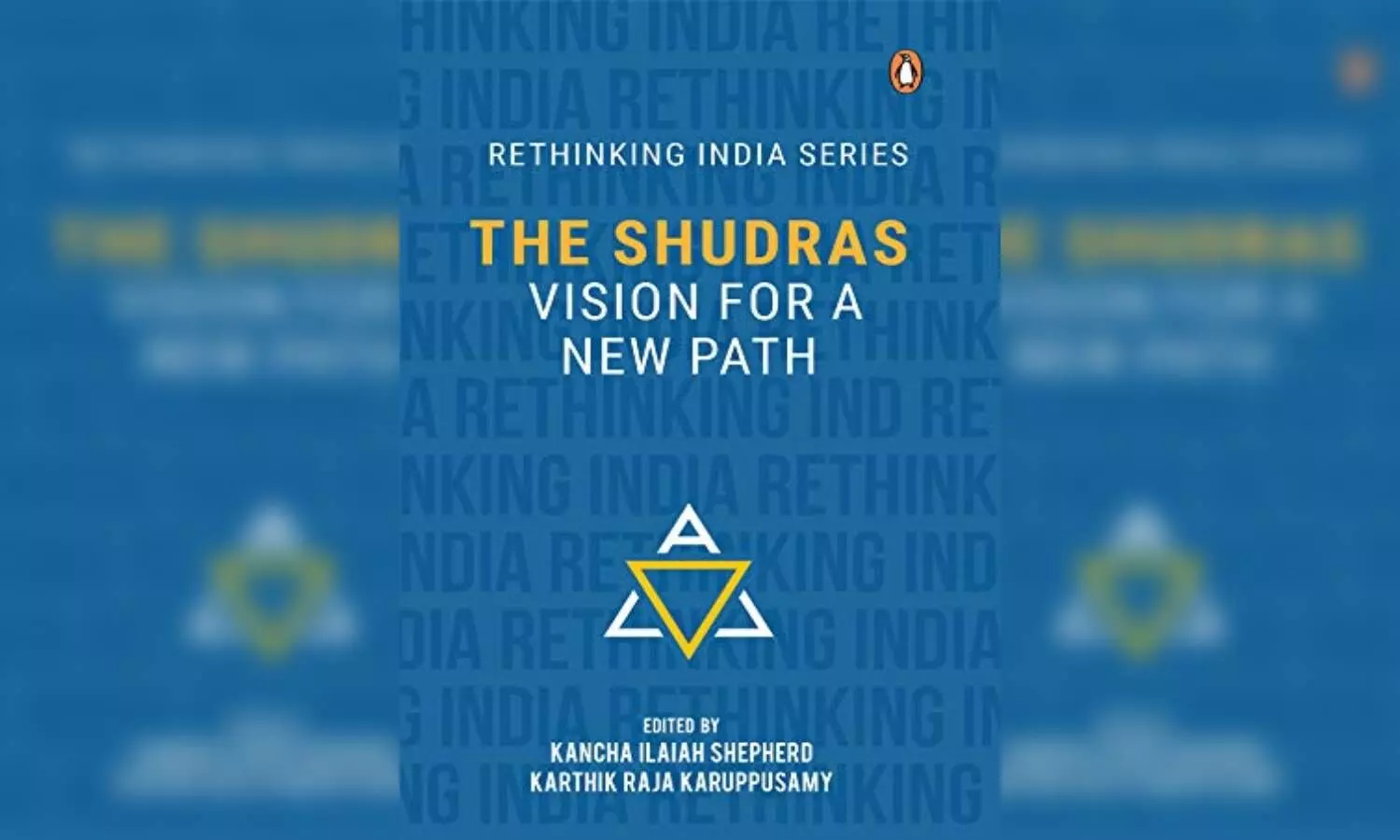Hindu Rashtra is nothing but Brahmin-Bania Raj: Kancha Ilaiah's new book
Prof Kancha Ilaiah’s new book of essays “The Shudras: Vision for a New Path” is a clarion call for all Shudras to unite to avert the danger of being subjugated by the RSS-BJPs 'Hindu Rashtra'.
By Jinka Nagaraju
Political thinker Prof Kancha Ilaiah's new book of essays "The Shudras: Vision for a New Path" is a clarion call for all Shudras to unite to avert the danger of being subjugated by the RSS-BJPs 'Hindu Rashtra'.
There has been little discussion on the contours of much talked about the Hindu Rashtra of RSS-BJP despite its growing popularity among the people.
The RSS, the parent organization of BJP, has never given clarity on the shape of the Hindu Rashtra with regard to the status of Shudras, OBC, Dalits, and Adivasis.
Questions like will it be a casteless state; will it be a state where varnashrama Dharam is the source of "the rule of law", have not been clearly answered.
The book, edited by Prof Ilaiah (former Director, Centre for the Study of Social Exclusion & Inclusive Policy, Maulana Azad National Urdu University, Hyderabad), and another Shudra scholar, Karthik Raja Karuppasamy is an attempt to delineate the perilous consequences of Hindu Rashtra vis a vis the Shudras and other communities that have never enjoyed equal rights in Hindu society in the past.
The book, which was released on February 22, 2021, is a best seller in two categories namely Political Freedom & Security, and while it, occupied the second rank in the Theology& Philosophy of Religion section.
Hindu Rashtra, the book argues, is nothing but Brahmin-Bania Raj aiming to dismantle all institutions that stand for secular, socialist, democracy, in order to create a full-pledged Varnashrama order in the country.
In the era of Mandal politics, the term Shudras has become an unattractive proposition. In fact, the politics of reservations has created tension among the Shudras castes, which in fact, Ilaiah argues, has weakened the much-needed fight to protect the ideals of democracy.
This helped the RSS-led BJP form the national government, while parties led by the Shudras such as Karmas, Reddys, Jats, Yadavs, Kurmis, Lingayats etc. got caught up in the regional politics.
The emergence of regionalism of Shudra parties such as Telugu Desam, YSR Congress, Telangana Rashtra Samiti, Janata Dal (Secular), Samajwadi Party, Dravida Munnetra Kazhagam, All India Dravida Munnetra Kazhagam, RJD, NCP etc is a double whammy for these productive communities.
The phenomenon on one side has weakened the hold of national parties such as Congress, on the other it left the gates of national government wide-open for the entry of the force of Hindutva led by RSS-BJP.
The foremost danger lurking in the Hindu Rashtra is the possible dismantling of the electoral democracy, Ilaiah argued.
"The voting power of the Shudra/OBCs plays a key role in changing governments, as they form the largest social unit. The fear is that the RSS/BJP would not hesitate to dismantle the voting system if it feels threatened by electoral defeat," the book argued.
Talking to Newsmeter Prof Kancha Ilaiah said the essays of the book sought to decipher the real meaning of RSS proposed Sanskriti and Parampara. Any government based on these concepts, Prof Ilaiah warned, would ultimately lead to dictatorship harmful to Shudras, Dalits, and Adivasis.
As the existential threat for Shudras from Hindu Rashtra is looming, the book proposes even an action plan for these communities in order to preserve their socio-cultural identity.
"The Shudra interests and transformation lie in opposing both of these dictatorships. Shudras should work for the abolition of caste, untouchability, and for women's equality. Any other form should not be acceptable to Shudra/Dalit/Adivasis forces. Any dictatorship in India is bound to reinforce Brahminic varnadharmic ideology because of India's socio-historical background. For other non-brahminic religious minorities also this Constitution is the safest guiding philosophy and systemic structure. The Shudra/OBC/Dalit/Adivasis must fight for common English medium national school education, with due space to learning regional languages, with a secular, progressive and democratic curriculum content".